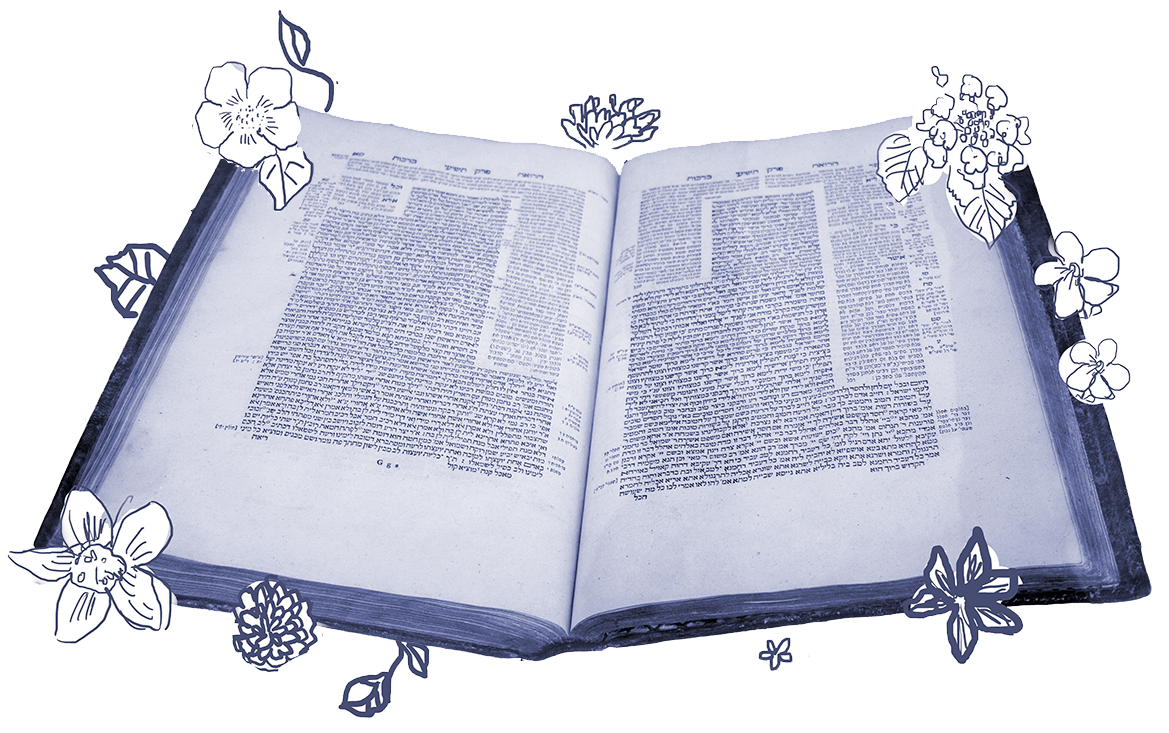Today’s daf, the last one in chapter two of Bava Batra, is largely concerned with trees that block or impede the properties and lives of others. A brief discussion takes place between Resh Lakish and Rabbi Yohanan:
When Rav Dimi came from the land of Israel he reported that Reish Lakish had asked the following halakhic question of Rabbi Yohanan: “Regarding a tree that is within 16 cubits of a boundary, what is the halakhah?” Rabbi Yohanan said to him: “He is a robber, and one does not bring first fruits from it.”
Rabbi Yohanan believes that planting a tree less than 16 cubits (approximately 24 feet) from the boundary wall of your neighbor’s property is robbery because the tree’s roots will extend under the wall, taking nutrients and water from your neighbor’s soil. He concludes that one is forbidden from bringing first fruits from that tree for the annual bikkurim ceremony (see Deuteronomy 26). This is because of the words that accompany that offering: “Wherefore I now bring the first fruits of the soil which you, Adonai, have given me.” (Deuteronomy 26:10) A person cannot honestly claim the fruits are given to him by God, says Rabbi Yohanan, if they are grown in soil that belongs to someone else.
The Gemara then reports an alternative version of Rabbi Yohanan’s ruling:
With your help, My Jewish Learning can provide endless opportunities for learning, connection and discovery.
When Ravin came from the land of Israel, he related that Rabbi Yohanan taught: “Both in the case of a tree that is close to a boundary and a tree that leans into a neighbor’s yard, one brings first fruits and recites the verses … as it was on this condition that Joshua apportioned the land of Israel to the Jewish people.”
In this version, Rabbi Yohanan allows the owner of the tree planted close to his neighbor’s property to offer its first fruits. Implicit in this ruling is that the tree’s owner has not stolen from his neighbor, even if the roots have gone into the neighbor’s soil or the branches occupy the neighbor’s air space. This is because Joshua led all the Israelites in conquering and apportioning the land and, at that time, stipulated that neighbors may not establish such strict boundaries between one person’s tree roots and branches and another person’s soil and yard space. Like trees whose branches and roots grow into and intertwine with one another, the people of Israel are intertwined — co-owners of all the holy land, technical property boundaries notwithstanding.
The translation above assumes that Rabbi Yohanan declared the owner of the tree a robber. But the ambiguity of the Hebrew text — which simply states “he is a robber” — yields an alternative reading: perhaps the tree itself (grammatically masculine in Hebrew) is the robber of whom the rabbi spoke. I suggest that Rabbi Yohanan might have personified this “thieving tree” that takes from the soil of its owner’s neighbor because, like many Jews of his time, he recognized that trees are not merely mute natural matter, but conscious and even conscientious beings with whom we co-exist in the natural community. They too possess sentience and, as it were, moral standing to rob from the neighbor’s soil.
Rabbi Yohanan hints at this same idea elsewhere in the Talmud (Yoma 83b):
Rabbi Yohanan said: “Once I became ravenous with hunger and I ran to the east side of a fig tree (where its fruits first ripen in the sun and are sweetest). And I thereby fulfilled the verse: Wisdom preserves the lives of those who have it. (Ecclesiastes 7:12)”
Rabbi Yohanan might have been referring to his own wisdom that steered him toward the sweet fruit that would satisfy his hunger. But I suggest that his quotation was a reference to the tree’s wisdom that allowed it to provide him with nourishment. (In fact, the first part of the quoted verse from Ecclesiastes refers to the idea of dwelling in the tzel, shade, of wisdom.)
The Talmud implies that, whether as thieves or as nurturers, trees (and perhaps, by extension, all other species) participate fully with humans in a global community of nature. We should therefore afford them the deep respect and care they deserve.
Read all of Bava Batra 27 on Sefaria.
This piece originally appeared in a My Jewish Learning Daf Yomi email newsletter sent on July 22, 2024. If you are interested in receiving the newsletter, sign up here.



